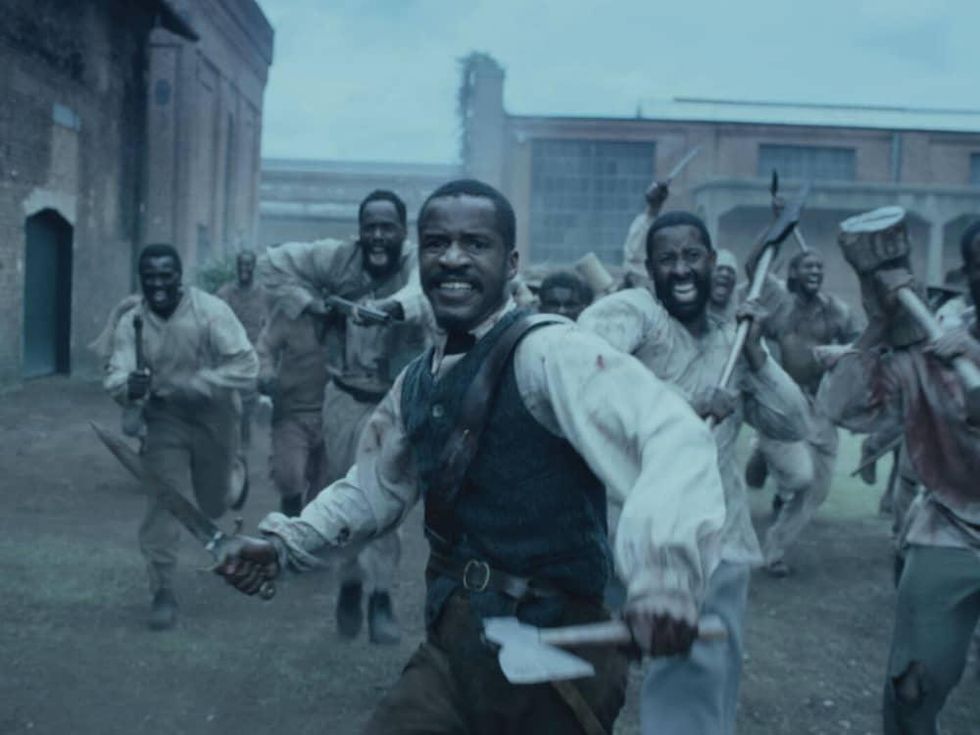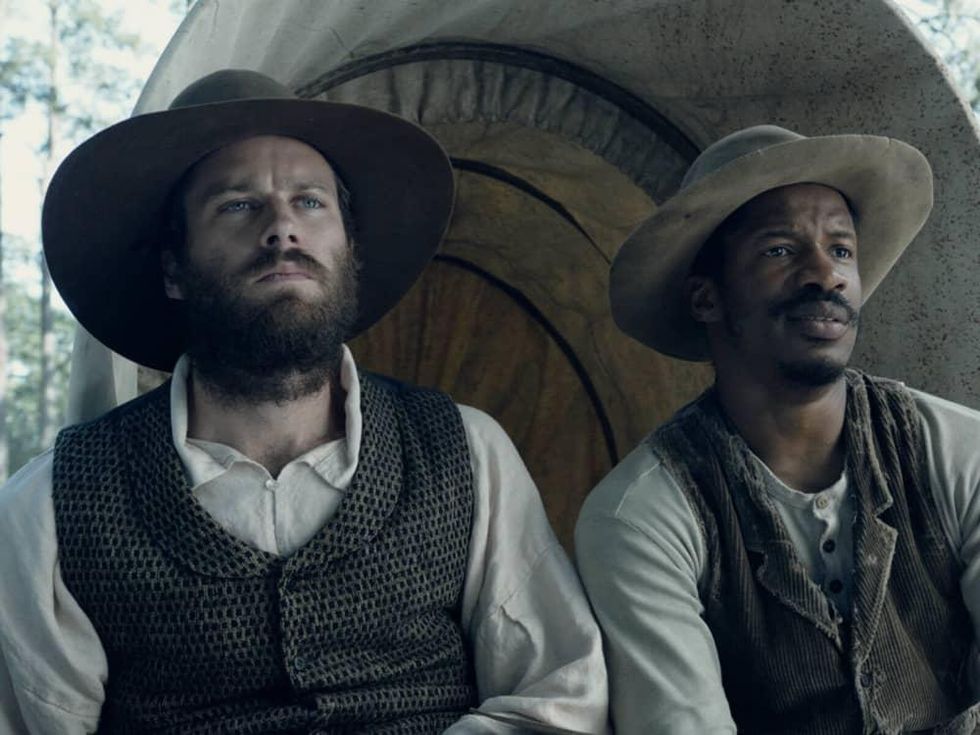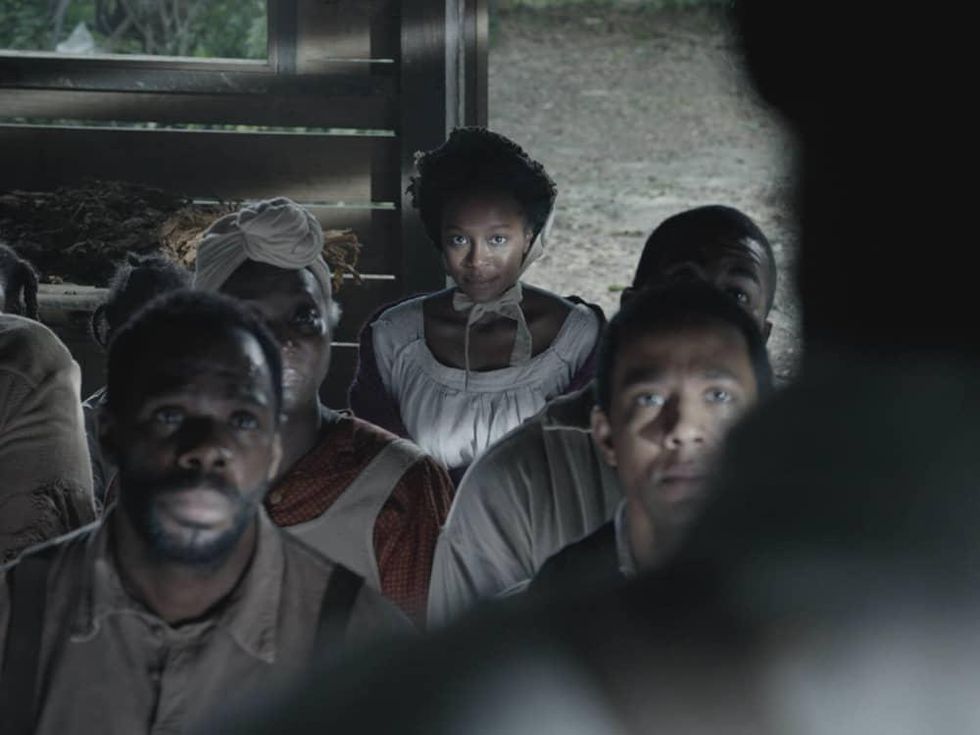There are some big theater weekends throughout the year across Dallas, but nothing like this weekend when no fewer than 14 different companies will debut their holiday productions, each one of them different than the rest. Given that large number, we'll break down the list by subject matter, including holiday festivals, music, dance, and comedy.
Below are the best ways to spend your free time this weekend. If you want more options, check out the calendar for an even longer list of the city's best events. For a big list of the best Christmas lights, go here.
Holiday Festivals
A Garland Christmas on the Square
A Garland Christmas on the Square will include the official tree lighting ceremony, live music, real reindeer, rides down the snow hill, a full-sized outdoor ice skating rink, photos with Santa, treats from downtown eateries and food vendors, vendors with artisan crafts, and train rides for the little ones. The event takes place on December 4 in Garland City Square.
Theater
Bishop Arts Theatre Center presents Black Nativity
This reimagined production of Black Nativity follows a family coming together to celebrate the holiday season while carrying the weight of a recent loss. Guided by the wisdom of their ancestors and interwoven with the timeless story of the birth of Jesus, the heartfelt retelling offers both reflection and joy. The production runs through December 21 at Bishop Arts Theatre Center in Dallas.
Theatre Three presents The Lion in Winter
The Lion in Winter is a modern-day classic dramedy, telling the story of the Plantagenet family, gathered over Christmas, who are locked in a free-for-all of competing ambitions to inherit a kingdom. The production runs through December 28 at Theatre Three in Dallas.
MBS Productions presents The Beulaville Baptist Book Club Presents: A Bur-Less-Q Nutcracker!
The women of the Beulaville Baptist Book Club are in dire straits financially, and as a last ditch attempt to save their book club they decide to do a fundraising performance of The Nutcracker. When the Beaumont Ballet is unable to perform, they hire the Velvet Kittens Burlesque Dancers. The “Bur-less-Q” group puts on the most original, unusual, and comical Nutcracker you have ever seen. The production runs through December 28 at Addison Performing Arts Centre in Addison.
The Firehouse Theatre presents Holiday Inn
Based on the classic film, Irving Berlin's Holiday Inn tells the story of Jim, who leaves the bright lights of show business behind to settle down on his farmhouse in Connecticut ... but life just isn't the same without a bit of song and dance. Jim's luck takes a spectacular turn when he meets Linda, a spirited schoolteacher with talent to spare. The production runs through December 21 at The Firehouse Theatre in Farmers Branch.
Art Centre Theatre presents O Little Town of Tumbleweed
Christmas is coming to the dusty little frontier town of Tumbleweed. The townsfolk are working hard to prepare for Christmas festivities but trouble blows in on the cold winter wind. Outlaws threaten to ruin the celebration, feuds between neighbors flare up, and the spirit of Christmas seems lost. Cowboy Santa Claus rides into town, reminding the citizens what Christmas is all about. The production runs December 5-21 at Art Centre Theatre in Plano.
Company of Rowlett Performers presents The Best Christmas Pageant Ever
In this hilarious Christmas classic, a couple struggling to put on a church Christmas pageant is faced with casting the Herdman kids - probably the most inventively awful kids in history. You won't believe the mayhem - and the fun - when the Herdmans collide head-on with the story of Christmas. The production runs December 5-13 at Plaza Theater in Garland.
Lyric Stage presents Forever Plaid: Plaid Tidings
At first, Francis, Jinx, Smudge, and Sparky aren't sure why they've returned to Earth for another posthumous performance, but a phone call from the heavenly Rosemary Clooney lets them know that they're needed to put a little harmony into a discordant world. Sprinkled among the Christmas offerings are audience favorites, as well as a Plaid Caribbean Christmas that puts the "Day-O" in Excelsis. The production runs December 5-21 at Lyric Stage in Dallas.
Garland Civic Theatre presents A Tuna Christmas
The annual Christmas Yard Display Contest in the small town of Tuna, Texas has been won 14 times in a row by Vera Carp. But a mysterious Christmas Phantom, known for vandalizing the yard displays, threatens to throw the current contest into turmoil. With 22 different characters, dozens of costume changes, and just two actors, A Tuna Christmas is a fun-filled, satirical look inside the workings of a small town at Christmas. The production runs December 5-14 at Granville Arts Center in Garland.
Theatre Arlington presents The Game’s Afoot or Holmes for the Holidays
It is December 1936, and Broadway star William Gillette, admired the world over for his leading role in the play Sherlock Holmes, has invited his fellow cast members to his Connecticut castle for the holidays. But when one of the guests is stabbed to death, Gillette assumes the persona of his beloved Holmes to track down the killer before the next victim appears. The production runs December 5-21 at Theatre Arlington.
Lewisville Playhouse presents Christmas Belles
A church Christmas program spins hilariously out of control in Christmas Belles, a Southern farce about squabbling sisters, family secrets, a surly Santa, a vengeful sheep, and a reluctant Elvis impersonator. The production runs December 5-21 at Lewisville Playhouse.
The Core Theatre presents The Trial of Ebenezer Scrooge
A year after his miraculous transformation, Ebenezer Scrooge is back to his old ways and is suing Jacob Marley and the Ghosts of Christmas Past, Present, and Future for breaking and entering, kidnapping, slander, pain and suffering, attempted murder and the intentional infliction of emotional distress. The production runs December 5-21 at The Core Theatre in Richardson.
Uptown Players presents Star of Wonder: A Carol Ann Christmas
In this festive world premiere, Carol Ann Knipple - Uptown’s hilariously misguided theatrical dreamer from When Pigs Fly - returns with a new holiday spectacular. After her beloved Melody Barn burns to the ground, Carol Ann heads to Dallas to mount the show of her dreams … at a theater she doesn’t quite understand. Packed with classic holiday tunes (plus a few with a twist), the seasonal romp is full of misadventures, heart, and more glitter than sense. The production runs December 5-14 at Kalita Humphreys Theater in Dallas.
Richardson Theatre Centre presents WRTC Radio Presents Our 3rd Holiday Radio Play
In holiday tradition, WRTC Radio Presents Our 3rd Holiday Radio Play is a tribute to the music and style of the Greatest Generation with music and skits popular during World War II. The production runs December 5-21 at Richardson Theatre Centre.
Theatre Coppell presents Fruitcakes
Fruitcakes is the story of a troubled youth who ends up in a small town and encounters characters who, in their daily routine, teach him the value of family and friends. They include the Christmas tree salesman, the town's constable whose wife directs the annual Christmas pageant, as well as two lovable old ladies who use a secret recipe to make fruitcakes. The production runs December 5-21 at Coppell Arts Center.
Music
The Vocal Majority Christmas Spectacular
The Vocal Majority Christmas Spectacular is packed with holiday cheer, heartwarming sacred music, and the signature Vocal Majority sound. Audiences can expect a joyful mix of fun and reverence across both acts, delivering the kind of festive, feel-good performance that has become a holiday tradition. There will be four performances through December 7 at Eisemann Center for Performing Arts in Richardson.
Andrea Bocelli in concert
As one of the most recognizable voices in the industry, Andrea Bocelli has been entertaining audiences for over 30 years, counting nearly 90 million records sold worldwide over 17 albums. He has earned a Golden Globe, seven Classical BRITs, and seven World Music Awards, plus a star on the Hollywood Walk of Fame. Bocelli will perform on December 4 at American Airlines Center.
Dallas Symphony Orchestra presents Home Alone in Concert
A true holiday favorite, Home Alone features a charming and delightful score by renowned composer John Williams’ that will be performed live to picture by the Dallas Symphony Orchestra. Macaulay Culkin stars as Kevin McCallister, an 8-year-old boy who’s accidentally left behind when his family leaves for Christmas vacation, and who must defend his home against two bungling thieves. The concert, conducted by Enrico Lopez-Yañez and featuring the Dallas Symphony Children's Chorus, will have three performances, December 5-7, at Meyerson Symphony Center.
Dance
Dallas Black Dance Theatre presents Black on Black
At Black on Black, Dallas Black Dance Theatre dancers flip the script and become choreographers, sharing original works in an intimate setting. Tickets include craft cocktails and elevated bites at a pre-show happy hour, followed by performances that blur the line between artist and creator. The evening will end with an afterparty with live DJ entertainment. There will be performances on December 5 and 6 at Dallas Black Dance Theatre.
Avant Chamber Ballet presents The Nutcracker
The Nutcracker, performed by Avant Chamber Ballet with a live orchestra, is an enchanting ballet that tells the story of Clara and her adventures with the Nutcracker Prince as they journey through the Land of Sweets. Featuring vibrant costumes, stunning choreography, and a professional cast of dancers, this production is a holiday tradition. There will be four performances, December 5-7, at Moody Performance Hall.
Dallas Ballet Company presents The Nutcracker
Dallas Ballet Company, under the direction of Judy & Brent Klopfenstein, presents the holiday classic The Nutcracker. Guest artists include Olivia MacKinnon and Aaron Sanz (soloists - New York City Ballet), Joseph Walsh (San Francisco Ballet), Amanda Assucena (Joffrey Ballet). The annual production features lavish costumes and a cast of more than 200 dancers. There will be five performances, December 6-14, at Granville Arts Center in Garland.
Comedy
Mic Drop Comedy presents Kevin Nealon
The only non-holiday event on the list this week is a visit by comedian Kevin Nealon. Known best for his nine-year run on Saturday Night Live, he's been seen on the big and small screen in an assortment of projects, including films starring his former SNL mate Adam Sandler and as a series regular on the Showtime series Weeds. He'll perform four times, December 5-6, at Mic Drop Comedy in Plano.
Photo courtesy of Theatre Three









